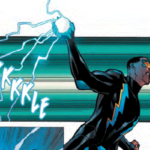
For those of you just tuning in, I’m Melinda-Catherine and I am a high fantasy nerd who has never seen the Harry Potter films before. I wanted to take a look at how these movies stack up as a fantasy adventure story and overall as major blockbuster films, without the context of childhood nostalgia or even familiarity with the books. Before we move forward, let’s be clear that this is not a review, but rather an introspective. So far, I think there’s some crazy interesting stuff!
So here we are, dear readers. I have officially seen one whole Harry Potter film, and I have to say it was absolutely nothing like I expected.
I have also, for the sake of research and prying minds, taken the Pottermore sorting test, which I have been told is the MOST accurate one. J.K. Rowling’s robot sorting garment has indeed confirmed that I am a snake person. Or Slytherin, as I now know.
Now, let’s have some honest talk here. I was not anticipating enjoying this film. I’m not a kids’ story person, I prefer swords and shields, and I feel like magic should be treated as a devastating power. The idea of children learning it as one would learn their multiplication tables seemed a bit odd to me. I was expecting to slog through the first few flicks until they were grown up and the mysterious He-Who-Has-A-Terribly-Abbreviated-Villain-Name had a Sailor Moon level transformation into the fabulous Ralph Nathaniel Twisleton-Wykeham-Fiennes.
That’s his ACTUAL name by the way. You’re welcome.
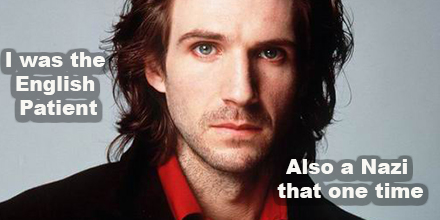
That being said, as the first film of a franchise, I found Harry Potter and the Sorcerer’s Stone to be outstandingly fascinating.
The beginning of this piece sets up a slightly jarring fairy tale which appears to be the framing device of the story. A lone Merlin-style wizard, Albus Dumbledore, drops off a special destiny baby on a modern household doorstep to be raised by cruel relatives, so that he might be spared potential harm/bad influence.
It is a pretty standard Cinderella story. Eleven year old Harry is cooking for the cruel step-family, living under the stairs, and repeatedly being told, nay, convinced, that he is not special. I totally accept this as a framing device, for a child. They do not understand the overarching Grimm-soaked implications of child labor or conceptualize the full extent of the threat of not being fed for a week. As an adult, this concept gets a little wonky.
Despite the convention of the trope, I consider this jarring because traditionally when you are presenting this kind of extreme behavior towards children, there is a hyper realism or accentuation of the fantastical. Think the Ice Queen in Narnia tempting a child with turkish delight from a magical sled, or literally any of the horrible children in “Charlie and the Chocolate Factory”. These stories are seeped in the world of seamless parable, coupled by fantasy, and as a result they sit more naturally within their universes. The abuse is displaced from our world and shown exclusively in theirs. I wondered, often quite audibly to my cat, why no neighbors had intervened with the Dursley’s very public behavior towards Harry.
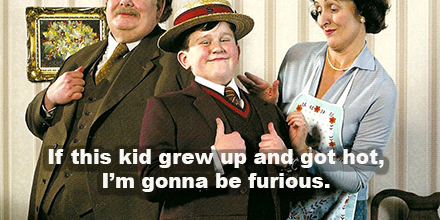
Thankfully, that particular fairy tale was clearly not the movie Chris Columbus signed on to make. Though I can imagine with a name like that in grade school, he most certainly hoped that one day he too could escape his cruel parents.
The Cinderella-boy vignette is quickly rushed through, presumably more enjoyable for those who had the fleshed out knowledge of the withstanding literature as backing, to get to the part that I found to be the most fascinating part of this story.
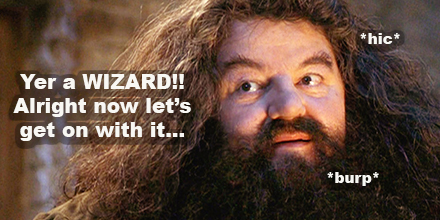
Beneath the surface of an exceedingly British story about witches and wizards going to school is a remarkably dense, dark, and complex World War II reality, ingrained in so much British fantasy storytelling. But in my opinion, it has never been done so well as to what I have now seen in Harry Potter. This is the story that I have no doubt, Columbus was hoping to tell. As a result, it sets the tone for a remarkably complex film.
Hundreds of pens have been put to thousands of sheets of paper from generations of English men and women who experienced either first hand, or the rippling malaise apropos to, the first and second World Wars. Specifically, many children’s stories have been born of this. The Lion, The Witch, and the Wardrobe, for example, begins with the child heroes of the tale being evacuated by train from London during World War II to escape the Blitz, where they are immediately whisked into an ongoing fantastical war of their own. There are also hundreds of academic pieces that have been both written about, and by, John Tolkien, talking about how his experiences with the Great War (aka World War I) were directly paralleled in his books The Hobbit and The Lord of the Rings.
So let’s look at little Harry in context to all of this.
A young boy’s parents are killed in a great conflict and he is sent to live with relatives. They, in turn, choose to mutter and displace the heroism of his family as a cause they do not support nor feel is any sort of proper folks’ business. When it seems like the past is coming back to haunt them, drawing them back into this world of conflict, they actively try to protect this 11 year old, albeit quite badly. The world is not how they choose to see it, and as a result, Harry is drawn back into the fold of, hilariously enough, the magical reality.
Elated to be finally seen as a person, and not a two-dimensional archetype to scare German children into doing their chores, young Harry is whisked away by a lovable giant with a penchant for being “the guy you can clearly sell weird shit to” in Dickensian style pubs. I’m still wildly unsure as to why we have trusted hero baby Harry Potter in the hands of a man who, through the powers of typecasting, I would not trust with a rabbit, but here we are.
And then we begin to deal with the actual magical general public. This is where Chris Columbus really, really taps into this great post-war imagery.
Harry is truly introduced to the magical community as he walks through a classic, English country styled pub. He is a heroic symbol in this general public, a child who survived the great conflict before. He walks through a cloud of elders who look at him as a precious commodity, meant to be protected from something darker this world is still recovering from.
This 11 year old child is also indoctrinated into a world of adult secrets and politics in a very natural way. While taking a simple trip to the bank, Harry is witness to the resoundingly English “never mind all that” mentality of Hagrid procuring an item for Headmaster Dumbledore. To quote that OTHER thing I love, “whispers in the North” are clearly already beginning to gather as the adults see another conflict coming. The attempt, for now, is to circumvent to protect the new generation.
In the highly adorable din of back-to-school shopping, (this series was clearly written by a parent), Harry is left to shop for his magic wand. Alone in store, he is met by the transcendently great John Hurt. He is Mr. Ollivander and his job is guide children in how to equip themselves for life, or more accurately, a life at war.
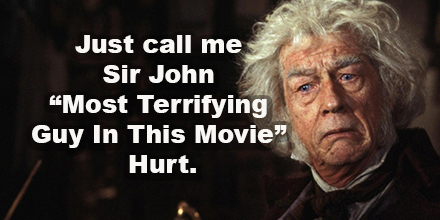
There are two incredibly powerful scenes in this film. I am about to talk about one of them.
Mr. Ollivander provides a wand or two for Harry, with devastating effect. The lighting/color work and just the crypt-like nature of the film set presents an aura of destruction, rather than charm, as Harry proceeds to accidentally destroy parts of this store with wands. It is only when Harry finds his wand, a wand with a sinister brother at that, is there finally a semblance of control and fortitude within him. This is the first time in the film he looks like Harry Goddamn Potter, the kid who deserves to be the title character of a seven book series.
Chris Columbus isn’t fucking around with magic you guys.
This scene, I think, is going to resonate with me throughout my watch of this series. I finally saw where magic lives in this universe. This is an 11 year old child with the ability to destroy with the flick of a wrist. Essentially, Mr Ollivander is handing him an overwhelming weapon, where the only “safety” provided is the inexperience of youth. It was not something that was used for household chores or to float feathers at parties to look cool. Magic just exists, and as a result of that, someone is always going to try to misuse it. Much like how when a new piece of technology is discovered, it cannot be undiscovered. Despite the adults of this film desperately trying to keep this younger generation out of harm’s way, these children are in a perpetual state of being prepared and trained, just in case.
But we move on to act two, putting the children on a train to be shipped off to boarding school, far away from such adult worries. Sound familiar? Upon said train we are properly introduced to two pretty important characters, an adorable cockney child and an overachiever. Ron Weasley is precious. He also has too many siblings to count, which based on my “we’re gearing up for a World War” assessment makes me assume half of them are going to die at some point, so here’s a pre-emptive, sarcastic, “thanks, my heartstrings”. Hermione Granger is the kind of annoying child character I was expecting from these films, though I assume her penchant for above-and-beyond is due to a need for compensation that I’ll learn about in the near future.
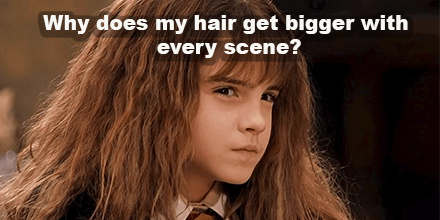
When they arrive at this giant castle in the middle of nowhere, you know, because England, we are introduced to yet another exceedingly English pretense: their class system. The tiniest blonde child, Draco Malfoy, spouts some throw away lines directly in response to a class system that is clearly no longer in place, the result of which just makes him look like a turbo prick. I imagine him and the guys from Omega Theta Pi would get along pretty well, once they got him an apple box to stand on like so much Tom Cruise. That being said, he is tied with Maggie Smith for the “Best Hair Appearing in this Film” Award.
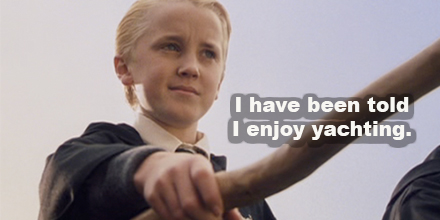
The children are thusly sorted into their battalions. Excuse me, I mean houses. I didn’t quite understand this process at first, as it just seemed like Gryffindor was the home of the proverbial popular kids and Slytherin was where all the bullies went. The nuance of the significance of these houses and their traits did not really solidify for me until later. Overall though, this scene seemed like it was more about seeing the talking hat than expressing real information about the process of sorting. Another moment, sadly, that felt like it was pandering towards fans of the books, and therefore lost momentum for me as a film watcher. I feel like it would not have taken away from anything to have a random Professor become an exposition fairy for a moment, and explain what all of the houses weird deals were.
They then proceed to feast.
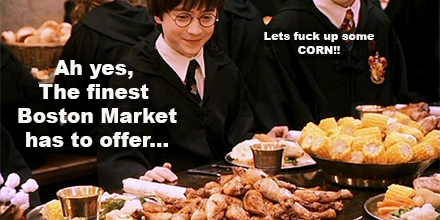
For the record, this exact spread is in 3/4s of the dining scenes in this film.
The bulk of the third act of the film is spent keeping children away from the harsh reality that this new threat is coming. The adults prepare themselves so that the children will not have to fight and die as they have seen happen before. They do this through the most adult concept ever: lying. It’s a lot of small discoveries on the part of the children, followed by a lot of consummate denial on the behalf of the people who should be looking out for said children a need for dangerous discovery on their own behalf. As part of these ongoing distractions, we see the children participating in the frivolities of seasons. It is quite adorable.
Of course, it is also filled with the most dangerous/the MOST English sport I have ever seen. If you’ve always wanted to see rugby really givin’ it to polo, there’s a game for that now. Maggie Smith’s perpetual hard-on for the sport gives me life. This is accompanied by yet another very nice Chris Columbus moment, though credit should maybe go to the casting directors as well. Watching an 11 year old walk out onto a sports field with a series of very clearly high school teenagers to play a staggering dangerous and violent sport was quite the tableaux and certainly presented a sense of gravitas I was not expecting, for a game that was comparing horses to broom sticks.
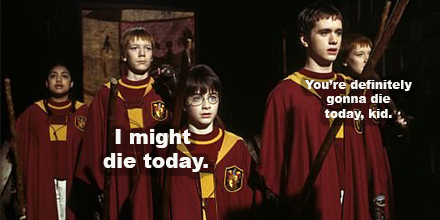
The fourth act, as they begin to actively participate in finding/recovering the Sorcerer’s Stone, is where the Gryffindor house ideals finally started to click in for me. Surprisingly enough, this was not as a result of the Harry Potter, which I wonder if that is done intentionally. The friendship team fights their way through a series of tropes, a creature, a puzzle, a feat of strength. Little Hermione doing what she does best, keeping her cool under pressure because she’s right. Harry staggers through these trials with the grace of an Ox, listening more to others than actually outright doing anything that would prove him to be special in any real way. I’m still waiting to see how this magical destiny baby fits into all of this.
We then come upon what I would consider the second most powerful scene in this film, the deadly wizard’s chess sequence.
Because of the lack of any real explanation to the division of the houses, I was very unsure as to why Ron and Hermione were in Gryffindor. Hermione I’m still not entirely sure about, I can only assume it becomes clear in a later film. They both kind of seemed to fit into other stereotypes with this magically inclined Breakfast Club. Not to mention that from a storytelling POV, I would have thought that the point of the different houses would be to show children from all different walks of life working together. To have them all in the same house seemed like an odd choice.
But when we got to the wizard’s chess sequence, I finally got to see little red faced Ron in action and as a result, I was shown some great character nuance. This was the first real war scene of the film, and presumably, of the franchise. Once again, the age of the children really played a huge factor. Seeing a child on this grand war horse, having to make a life or death decision at such a young age, the gravitas of what they were doing finally sunk in for myself, as well as for the characters. Like in so many other childlike adventures, the threat of death is never very serious, due to the nature of the intended audience and, in the case of film, FCC influence. As Ron decided to sacrifice himself to get his friends through the door, the intensity of the actor’s performance, a child actor I might add, showed me that this pre-teen boy had already seen enough trouble in his life to know what was the right decision to make. And that is flipping heartbreaking. I not only finally understood what it meant to be a Gryffindor, but I think Harry and Hermione really got their first taste of real, palatable death in this world, beyond just the stories and threats doled out to them. Of course, it is still a children’s tale, so everything worked out for the best, but it was an unexpected surprise that for a moment, I didn’t think it would.
Our exposition fairy comes, full force, in the form of Professor Squirrel, or Quirrell. I didn’t bother to remember his name because literally every time I saw him I kept noting that he was the speech impaired James Bond level sidekick villain who was going to die at the end of the film. Low and behold, I was correct. He has another dude in him who is waiting to burst forth and become a glorious Hitler allegory. His face was not Ralph Fiennes, I was mildly disappointed.
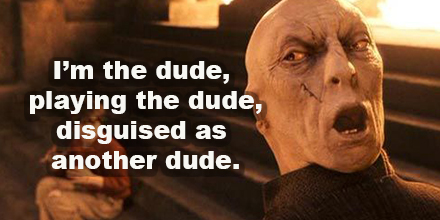
It was pretty predictable, as Alan Rickman’s character is too easy of a scapegoat to NOT use at least ten million times. As of this moment, I am leaning towards the idea that his weird deal is that everyone blames him for everything because he is just a creepy, weird guy. That’s enough to make anyone an asshole.
We get a cool sequence with literal plot device fancy mirror, and a spooky phantom scene that didn’t make any sense to me. Again, this is the third time I had to equate what was theoretically a very important moment with, “Well, I guess you had to read the books,” which I have to say is really lazy on the part of the screenwriter at this point in time. This isn’t some Tom Bombadil unnecessary but cool bullshit, this is the end of your flipping movie. I shouldn’t be left wondering what Hitler allegory’s weird deal is to this extent.
But here we are. Harry hasn’t really done much, but all stories are wrapped up we’re on our way. The Sorcerer’s stone is destroyed, something that probably should have been done in the first place the moment that people learned it was going to be used to unleash, you know, the worst guy ever. The school year is over and we’re back on the train, heading off into the wild blue yonder of summer.
Maybe Harry’s family will treat him with a little more goddamn respect now because he’s the chosen one Jesus baby with wildly terrifying magic friends.
Overall, this was a far more enjoyable experience than I initially anticipated. Not that I was anticipating that I would outright hate it, but can you imagine reading through all these articles if I did? Woof, that would be a rough series to get through. But this film actually has me hooked to learn more about the series, which overall when you’re looking at franchise development, is key. It hits a lot of the traditional English fantasy elements through its base influencers, but I want to see where they go with that. As of this moment, Harry Potter consists of some really fascinating tone, but I feel like I lost out on some of the world building that really helps to define the connections with the characters. I’m really hoping that I’ll be able to see a lot of my questions fleshed out in the next film.
Final thoughts going into my next watch:
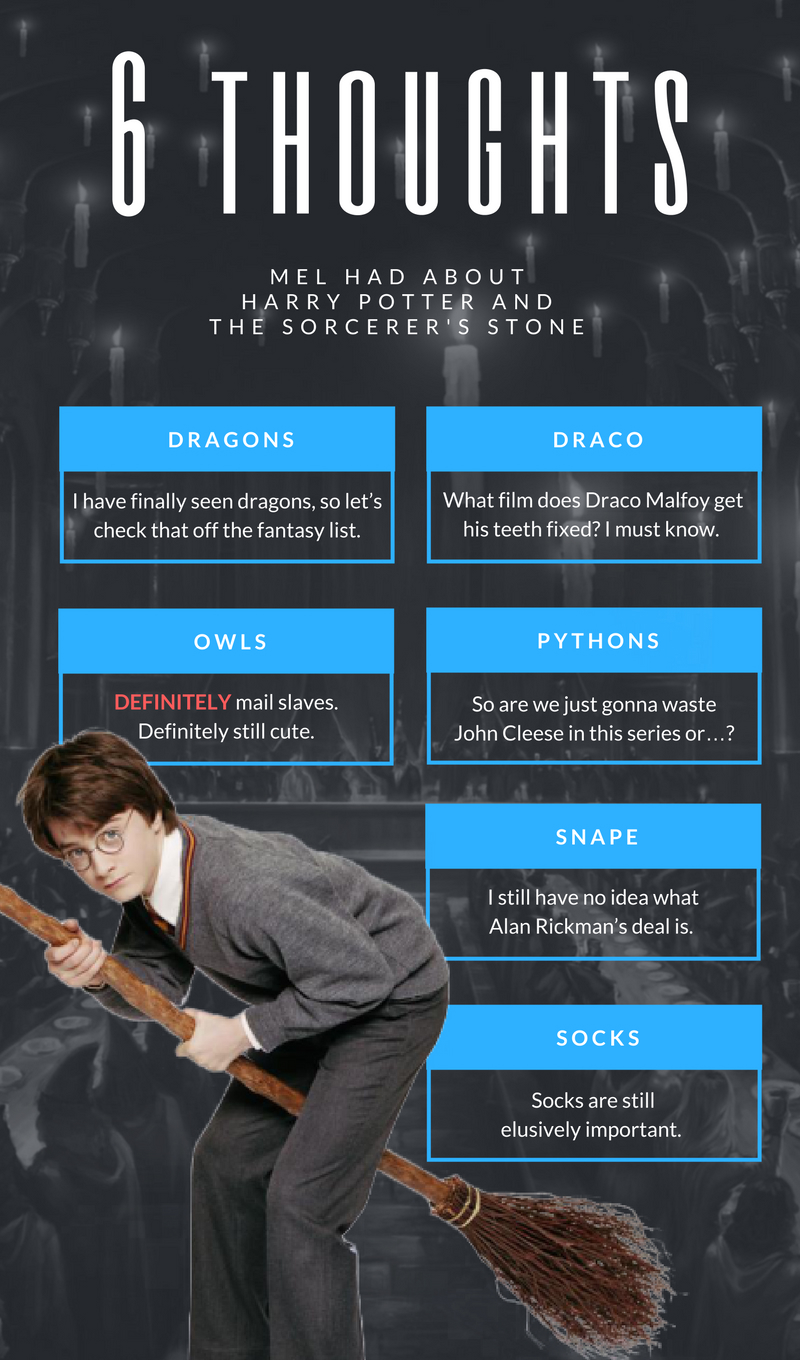
In conclusion, as of this moment, Ron Weasley is my favorite, as he is the most sensible child in Hogwarts. He is followed at a close second by the impeccable Maggie Smith, may she live forever.
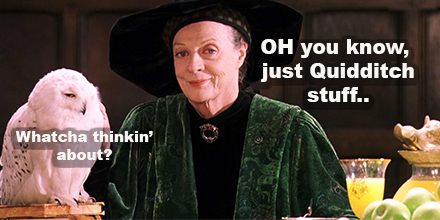
All right guys! Tune in next time to check out my first watch through and reactions to Harry Potter and the Chamber of Secrets, where I’m hoping to learn more about the house that I personally was sorted into: Slytherin!
Follow the entirety of this journey below:

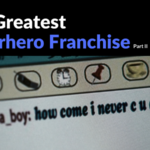
![[MAY THE 4TH BE WITH YOU] KYLO REN’S ‘CUTEST EMO BOI IN THE GALAXY’ PLAYLIST](https://geekd-out.com/wp-content/uploads/2019/04/kylo-ren-db-main_e2e6f666-150x150.jpeg)
